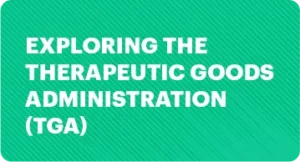Unlock Your Auditing Career: 7 Essential Skills for GMP Internal Auditors
Internal auditing plays an important role in Good Manufacturing Practices (GMP). GMP Internal Auditors must have certain essential skills to perform their duties effectively and objectively. Such skills are essential to ensure that all processes are executed in accordance with applicable standards and laws. This guide will cover the 7 essential skills every GMP Internal Auditor should develop: attention to detail, critical thinking, ability to ask effective questions, objectivity, knowledge of relevant laws and regulations, communication abilities, and the ability to work independently.
Attention to detail is arguably the most important skill an Internal Auditor must possess as it can mean the difference between a successful audit and a failed one. Attention to detail means looking at all aspects of quality control and identifying issues that could be improved. Without a careful eye for details, Internal Auditors might miss smaller issues that may lead to bigger problems down the line.
Critical thinking is also important for auditors because it allows them to stay unbiased. They must be able to look at the data and facts objectively, without making assumptions or being influenced by emotions or past experiences. With critical thinking, an Internal Auditor can identify potential risks and design an audit process that covers every aspect of quality.
Asking effective questions during an audit is also crucial. Asking good questions can help Internal Auditors get more information and gain a better understanding of the processes they are auditing. Asking the right questions can also help them detect any potential issues and design an audit plan that accurately assesses the situation as well as recommend corrective measures.
Objectivity is another key skill Internal Auditors must possess when performing an audit. This skill involves assessing data and facts without any personal bias. Objectivity means gathering evidence and data that accurately reflects the audit, free from any sort of judgments or preconceived ideas. Objectivity helps ensure that the audit process is reliable and produces accurate results.
GMP Internal Auditors must also have knowledge of relevant laws and regulations to ensure compliance. Knowing applicable laws and regulations helps Internal Auditors identify areas of concern and suggest corrective actions if necessary. Internal Auditors must also have the ability to interpret the information they find during the audit and make sure it meets the established legal standards.
Communication abilities are also essential for an Internal Auditor. During the audit, the auditor needs to be able to effectively communicate and interact with all stakeholders involved. They must be able to explain to those stakeholders why certain decisions were made and answer any questions they have. Good communication is also necessary when reporting audit results to the appropriate people.
Finally, Internal Auditors need to be able to work independently. While they may receive guidance and support from their colleagues, they ultimately need to be able to make decisions on their own and take responsibility for their work. This means having a thorough understanding of the audit process, analyzing data, and being confident in your ability to make accurate decisions.
In conclusion, Internal Auditors must possess seven essential skills – attention to detail, critical thinking, ability to ask effective questions, objectivity, knowledge of relevant laws and regulations, communication abilities, and the ability to work independently. These skills are essential to ensure a successful audit process and deliver reliable results. For further development of these important skills, Internal Auditors can refer to resources such as online tutorials, webinars, and e-books, and take training courses provided by professional organizations.
GMP Internal Auditors are a vital part of the quality control system. They are responsible for ensuring that suppliers and manufacturers meet the required standards for safety and quality. To excel at this task, auditors must develop several essential skills to make sure they are accurately and objectively evaluating operations. The seven essential skills every Internal Auditor should develop are attention to detail, critical thinking, ability to ask effective questions, objectivity, knowledge of relevant laws & regulations, communication abilities, and the ability to work independently.
Attention to detail is one of the most important skills an auditor must possess in order to properly assess product quality and manufacturing processes. An Internal Auditor needs to be able to identify potential issues quickly and accurately to determine if there are any risks that need to be addressed. In addition, attention to detail helps auditors to properly document their findings and ensures that reports accurately reflect their observations.
Critical thinking allows auditors to evaluate processes and products objectively. To do so, they must consider all aspects of the production process and use logical reasoning and evidence to come to a sound conclusion. This skill also prevents auditors from making assumptions based on personal bias or experience but instead encourages them to examine all available information before forming an opinion.
Asking effective questions is another important skill that Internal Auditors must have to ensure they are capturing the necessary information during an audit. Without asking good, precise questions, Internal Auditors can miss important details or misunderstand the process they are auditing. Effective questioning also encourages open dialogue between the auditor and the parties they are examining, helping to create a safe and collaborative environment.
Objectivity is another key skill necessary for Internal Auditors. Auditors must remain impartial and unbiased when examining a process or product to ensure they are making decisions based only on the evidence presented. Allowing personal opinions or experiences to affect an audit would not only be unprofessional but could also lead to inaccurate results.
In addition to remaining objective, Internal Auditors must also be familiar with relevant laws and regulations. Knowing what regulations must be met for a product or process to be considered compliant can help auditors determine if any areas need to be improved or if any non-compliance issues exist.
Having strong communication abilities is also important for Internal Auditors. Whether it’s during the actual audits or when presenting results, good communication can help bridge any potential gaps between the auditor and the auditee. Auditors should be able to clearly explain their expectations as well as provide constructive feedback on any areas where improvements can be made.
Finally, Internal Auditors must be able to work independently. It is important that they have the ability to understand the scope of the audit and to know exactly what to look for. Internal Auditors should also be comfortable with researching best practices and any other relevant information necessary to perform a complete evaluation.
By developing these seven essential skills – attention to detail, critical thinking, ability to ask effective questions, objectivity, knowledge of relevant laws & regulations, communication abilities, and the ability to work independently – GMP Internal Auditors can be better prepared to accurately assess product quality and manufacturing processes, leading to greater compliance and improved safety and quality standards.
To further develop these skills, there are several helpful resources readily available online such as articles, webinars, and courses focused on Internal Auditing. Additionally, many organizations offer certification classes or seminars specifically designed for Internal Auditors to help them stay up to date with changing regulations and industry standards.
Attention to detail is an essential skill for any GMP Internal Auditor. It is a valuable tool that helps Auditors find small discrepancies that could lead to major compliance issues. Attention to detail allows Auditors to be thorough and accurate in their reviews and analyses, providing more reliable results. It also helps Auditors recognize signs of potential fraud or deceit and weed out information that may be inaccurate or misleading. By paying attention to details, Internal Auditors can detect irregularities in documents and provide accurate assessments of a company’s compliance with applicable regulations. Being able to pick up on small details is how Auditors are able to uncover non-compliance issues and identify areas for improvement. Attention to detail is a valuable asset for any Internal Auditor and should be developed and honed with consistent practice.
Developing Critical Thinking as a GMP Internal Auditor
Critical thinking is essential for an Internal Auditor, as it helps them to remain objective. It is the ability to make decisions based on evidence, analysis and expertise rather than personal bias. This skill is used to evaluate information and assess the validity of ideas that can then be used to make informed decisions. Being able to think critically helps Internal Auditors to remain unbiased and conduct their job effectively.
To develop critical thinking skills, an Internal Auditor must first start by asking themselves questions about a particular situation. For example, they should consider what they know and don’t know about the situation, how they can acquire further information, the context of the situation and any potential outcomes. They should also evaluate any evidence and input from other sources in order to reinforce their own conclusions. Finally, it’s important to remember to not take anything at face value and to ask reasoned, thoughtful questions to reach an informed conclusion.
Asking crucial questions is one of the seven essential skills that GMP Internal Auditors must develop. It can be easy to come across as aggressive when asking questions, so it is important to remain professional and polite when conducting audits.
The ability to ask effective questions allows Internal Auditors to obtain the information they need in order to efficiently complete the audit. By asking the right questions at the right time, the Auditor can focus their efforts on the most important areas, rather than wasting time gathering irrelevant information. Asking effective questions also demonstrates a clear understanding of the subject matter and helps the Auditor come to an accurate conclusion.
When constructing questions, care should be taken to remain concise and to the point. Long-winded or vague questions will often lead to inaccurate results, and hinder the efficiency of the audit. Questions should also be open-ended, allowing for potential issues to be identified.
In order to ensure accurate results are obtained, it is essential that Internal Auditors possess the ability to ask effective questions. Thoughtful, open-ended inquiries will help the Auditor focus their efforts on the relevant areas, enabling them to accurately complete the audit process.
Objectivity is an important skill for GMP Internal Auditors as it ensures any assessments they make are unbiased. Being objective means being able to look at evidence without letting personal biases or emotions interfere with a conclusion. It is important because it allows auditors to make sure that all processes or procedures are being followed correctly and to identify any areas that may need improvement. Objectivity also allows auditors to be accurate in their reporting.
To maintain objectivity, GMP Internal Auditors should:- Be aware of any potential conflicts of interest and remain mindful of them throughout the audit process.
- Not jump to conclusions or make assumptions until all facts and evidence have been properly evaluated.
- Keep judgments separate from any opinions or expectations.
- Not allow themselves to be influenced by others.
Maintaining objectivity while performing an internal audit is essential as it helps ensure findings and recommendations are reliable and accurate. By possessing this skill, GMP Internal Auditors can be trusted to do their job ethically and professionally.
Auditing is a vital role in GMP and having the right skills is essential for success. One of these essential skills is knowledge of relevant laws and regulations. This requires auditors to stay up-to-date and understand the relevant laws and regulations that affect their particular industry and audit. It is also important to be able to interpret those laws and regulations and apply them appropriately during the audit process.
Knowing the laws and regulations allows Internal Auditors to better identify any potential violations that may have occurred. It also enables them to check for compliance with those regulations during the audit. Being knowledgeable in the latest laws and regulations can help Internal Auditors look at a situation from different angles, helping them to track down any non-compliance issues that may have otherwise been missed.
Finally, being well-versed in the laws and regulations applicable to their industry can also help Internal Auditors develop additional expertise that can be of use when facing new audit challenges. An in-depth understanding of the relevant laws and regulations can provide Auditors with valuable insight that can be used to develop more comprehensive audit plans.
Having strong communication abilities is an essential skill for GMP internal auditors. Auditors have to communicate their findings with their peers, superiors, and other departments within an organization. They must be able to present their information in a clear and concise way that all stakeholders can understand.
Having the ability to effectively and accurately communicate their findings is key to a successful audit. Auditors should be able to explain the objectives of the audit, introduce the scope of its work, and outline the processes used to arrive at its conclusions. Strong communicators are also able to provide explanations that answer any questions stakeholders may have about the audit.
Being an effective communicator also involves active listening. By listening carefully to questions and comments from stakeholders, auditors can gather important information and identify any areas that need further clarification. This helps ensure that all parties involved understand what they need to do and what’s expected of them.
Good communication is also important when reporting findings and writing corrective action plans. Auditors must be able to craft effective messages that summarize the results of their work in a way that is easy for stakeholders to understand and implement.
Overall, having excellent communication abilities is important for GMP Internal Auditors. Good communicators can accurately convey their findings and provide explanations that can be easily understood by all parties involved. This ensures that stakeholders are informed and aware of the results of the audit and how to best move forward.
Having the ability to work independently is an invaluable tool for GMP Internal Auditors. It requires the auditor to be organized, proactive, and self-sufficient in their planning and approach when performing an audit.
Being independent allows the Internal Auditor to think critically and objectively, without bias or influence from third parties. It also gives the auditor the freedom to plan the audit process and allocate auditing resources according to their own preferences.
To work independently effectively, the auditor must possess strong communication and problem-solving skills to be able to diagnose any potential issues and identify areas of improvement. This will allow them to make effective recommendations and suggest ways of enhancing the process for future audits.
Organization is also essential when working independently. An effective way to stay organized is to document all findings, action points, possible solutions, and further auditing tasks that need to be completed. This will help create a cohesive workflow and make sure that the audit process runs smoothly.
Finally, Internal Auditors should always have a clear focus when working independently, as this will help ensure that the audit is efficient and effective. By having a well-defined goal in mind, the Internal Auditor can stay on track and achieve results that meet regulatory standards.
Attention to detail is an important skill for any internal auditor to possess. When auditing, accuracy and precision are vital for providing the most effective results. Attention to detail helps ensure that mistakes are quickly identified and corrected before more serious issues occur. If an audit report is to be taken seriously, then attention to detail must be a part of the internal auditor’s toolkit.
In order to be an effective internal auditor, the individual must be able to focus on smaller details. This focus on detail helps internal auditors identify discrepancies in data, which could otherwise be overlooked. By sifting through records and documents, internal auditors can uncover errors or gaps which may have been overlooked by the company’s employees. In addition, attention to detail allows the auditor to look for patterns or indicators which help in the investigation of problems or potential fraud.
Focus on detail also helps internal auditors develop better and more efficient audit protocols. Attention to detail helps the auditor understand the scope of the project and prioritize tasks accordingly. This ensures that the audit process is thorough and complete. In addition, a keen eye helps the auditor focus on identifying and addressing issues which are essential for the overall success of the audit.
Attention to detail is essential for any internal auditor. Their ability to focus on small details helps them expose errors, find patterns, and develop more efficient audit protocols. Without this key skill, it is impossible to provide an accurate and successful audit.
Critical thinking is an essential skill for Internal Auditors, allowing them to stay unbiased in their assessments and decisions. It involves using logic to analyze situations, arguments and evidence presented by different stakeholders. It allows auditors to weigh up the pros and cons of any evidence, which helps them to draw accurate and objective conclusions.
Critical thinking helps Internal Auditors to remain unbiased during audits by preventing them from forming snap judgments or being swayed by personal opinions. They must assess each situation objectively and thoroughly analyze all evidence before making a decision. By utilizing critical thinking, auditors can perform their audits with precision and accuracy.
By remaining mindful of information provided and prioritizing facts over opinions, Internal Auditors can ensure they are making the correct assessments in every situation. Internal Auditors should actively practice and develop both their ability to think critically and to pay attention to detail as these skills are integral to the successful completion of their role.
Effective questioning is one of the most important skills required for Internal Auditors. Questions enable auditors to delve deeper into a situation; get further clarity on processes to identify any potential areas for improvement or risk; validate compliance and gain an understanding of how staff respond to certain situations. Questions can be asked in a variety of ways; open ended questions lead to more detailed information and probing questions can help to further uncover potential risks.
For instance, if an auditor is reviewing a process, they can ask questions such as “What happened after this step was completed?” or “Who was responsible for making sure this was done correctly?”. By asking these types of questions, an auditor can assess whether the process is following the correct steps, as well as ensure that any necessary controls are in place.
Another example would be when trying to evaluate whether a program complies with laws or regulations. The auditor can ask key questions that focus on specific areas of the regulation. Questions such as “Are there any policies in place to ensure this activity is compliant?” or “Who is responsible for reviewing and approving changes?” will help the auditor determine whether the organization is in compliance with the relevant laws and regulations.
Asking effective questions is a highly beneficial skill for Internal Auditors as it allows them to dig deeper and uncover any potential risks or issues. Through carefully crafted questions, auditors can ensure that organizations are compliant and secure.
Objectivity is one of the most important qualities that an Internal Auditor must possess. An auditor must be unbiased and independent in order to ensure that an audit is conducted objectively. To maintain their objectivity, auditors must not have any conflict of interest or presence of bias. This means that a GMP Internal Auditor should be impartial and fair when conducting an audit; they should be open-minded and objective when evaluating the evidence and the conclusions they draw from this.
The auditor should also know how to manage any conflicts of interest that may arise during the audit. This can include potential conflicts caused by personal relationships with members of the organization being audited or any third-party involved. An auditor should always consider how these potential conflicts of interest may impact the results of the audit.
The auditor must also maintain their professional independence throughout the audit process. Internal Auditors should not be influenced by the opinions or beliefs of the organization being audited and must act independently when making decisions and making recommendations.
Objectivity is essential to GMP Internal Auditing as it ensures that all areas of the organization are assessed impartially and accuracy in the findings is maintained. Delivering independent professional opinions free from any potential external pressures is integral to ensuring the internal audit process is effective and reliable.
Knowing the relevant laws and regulations is absolutely essential for any Internal Auditor. As GMP Internal Auditors, they must have a firm grasp on the laws and regulations that apply to the product they are auditing, as well as the industry standards surrounding it. This knowledge ensures that they are properly assessing risks associated with the product in question, and making sure that all components of the audit meet the necessary requirements. Furthermore, by understanding the laws and regulations applicable to the product, Internal Auditors also gain the ability to provide advice and meaningful guidance to their organization.
For example, when auditing a pharmaceutical company, the relevant laws and regulations can help Internal Auditors identify potential areas of improvement and provide the necessary recommendations. In order to recognize these areas of improvement, Internal Auditors must be familiar with existing legislation pertinent to the product and industry, and be able to assess whether the company is abiding to these regulations. In addition, Internal Auditors should continuously monitor changes in the laws and regulations, in order to ensure that the company is always compliant and up-to-date.
Overall, knowledge of relevant laws and regulations is essential for Internal Auditors, as it allows them to accurately perform their job and provide meaningful guidance to the organization. Being able to recognize areas of improvement is invaluable in helping a company reach its maximum potential.
Excellent communication abilities are key for any Internal Auditor as it allows them to effectively express their findings, and ensure those findings are properly received by the auditee. Without effective communication, an audit can be rendered ineffective and inconclusive.
The ability to communicate clearly and accurately is a skill that needs to be developed over time; it doesn’t just come naturally. An auditor must be able to explain their findings in an unambiguous manner – this is essential for their work to be valid. It also allows for a better understanding of the audit findings and action to be taken.
Furthermore, by having strong communication abilities, the auditor will be better equipped to handle different situations that might arise during the auditing process. This includes being able to ask follow-up questions when answers are not clear or complete, and being able to keep the conversation focused on the audit objectives. They must also be able to explain why certain corrective actions need to be taken, and what the consequences could be if the actions are not undertaken.
Finally, effective communication skills enable the auditor to develop and maintain good relationships with all stakeholders involved in the process. This allows them to build trust and create a collaborative atmosphere that facilitates the flow of information and, eventually, successful audit outcomes.
Internal Auditors must have the ability to work independently in order to be successful. Working independently means having the ability to identify and analyze problems as they arise, set priorities to address these problems, and then make decisions to correct them without requiring supervision or direction from outside sources. This type of responsibility requires an Internal Auditor to have strong problem-solving and analytical skills, and also requires them to understand the importance of taking ownership of their work.
Working independently also gives Internal Auditors the flexibility to receive feedback and take constructive criticism that can help them continue to grow and advance their skills. When Auditors take the time to act on advice and feedback, it shows commitment to continuously improve their abilities. Furthermore, when Internal Auditors are able to consistently produce results with minimal assistance, it reflects positively on their reputation and reliability as an auditor.
Having the ability to work independently is key to the success of any Internal Auditor. It allows them to remain organized and take ownership of their work without sacrificing quality. Additionally, it allows them to learn from constructive feedback and apply it quickly and effectively to their process. These skills can lead to positive outcomes, not only for Internal Auditors but also for their client organizations.
Having essential skills as an Internal Auditor is vitally important for performing quality audits. The seven basic skills that every Internal Auditor should have and continually develop are attention to detail, critical thinking, effective questioning abilities, objectivity, knowledge of relevant laws and regulations, communication abilities, and the ability to work independently. Having a good level of attention to detail is the most essential skill an Internal Auditor must possess in order to be successful. It is necessary for finding potential non-compliance issues and ensuring accuracy throughout the audit process. Critical thinking is also important, as it helps the auditor remain objective and impartial throughout the audit. Asking effective questions is another important aspect of an Internal Auditor’s job, as it allows them to explore deeper into each issue and identify any underlying problems. Being objective is another key skill, as it ensures the auditor gives an accurate assessment of each area audited and remains unaffected by any outside influences. Additionally, knowledge of relevant laws and regulations is necessary for Internal Auditors to make sure the organization is compliant with industry standards. Communication abilities are also crucial for Internal Auditors, as it helps them to conduct interviews, explain audit results accurately, and build relationships with the organization. Lastly, Internal Auditors need to be able to work independently, as they are usually responsible for conducting the audit on their own.
In conclusion, Internal Auditors should strive to develop these seven essential skills. Attention to detail, critical thinking, effective questioning, objectivity, knowledge of relevant laws, communication abilities, and the ability to work independently are all important tools that help Internal Auditors do their job. With these skills in place, Internal Auditors can properly assess the organization’s compliance and provide meaningful feedback. Helpful resources such as webinars, seminars, and other learning materials can assist Internal Auditors in further developing their skills.
Developing the essential skills of a GMP Internal Auditor is essential to ensure that audits are performed in a professional and compliant manner. Resources such as workshops, seminars, e-learning modules, and on the job training can help auditors learn or refresh their skills.
The Internet is a great resource for GMP Internal Auditors to find tools and solutions to audit-related problems. Webinars and online courses can provide an in-depth look at various topics related to Internal Auditing. Additionally, conferences and seminars hosted by industry experts can be a great way to network and gain valuable insights into best practices.
Books are another valuable source for auditors to learn more about the profession. Books written by well-known auditors and former GMP Internal Auditors may provide practical guidance and provide a wealth of information on various topics related to the role.
Organizations such as the Institute of Internal Auditors (IIA) and other professional bodies can offer members access to resources such as articles, blogs, webinars, and other relevant content. Many of these organizations also host their own conferences and provide certification programs which can help auditors stay up to date on best practices and regulations.
Finally, having mentorship from experienced Internal Auditors can provide an invaluable learning experience. Additionally, auditors can join online communities, such as LinkedIn groups, to exchange ideas and ask questions. With so many resources available, Internal Auditors have plenty of tools to further develop their skills.
When it comes to preparing for an Internal Audit, there are certain skills that are essential for success. These 7 essential skills include: Attention to Detail, Critical Thinking, the Ability to Ask Effective Questions, Objectivity, Knowledge of Relevant Laws and Regulations, Communication Abilities, and the Ability to Work Independently. Let’s take a look at each of these in more detail.
Attention to Detail is arguably the most important skill that an Internal Auditor must possess. It involves paying close attention to even the smallest details and understanding how they fit into the overall audit process. This allows the auditor to spot any discrepancies or inaccuracies and avoid any potential issues.
Critical Thinking is also an important skill for Internal Auditors to have as it helps them remain unbiased and make sound decisions when evaluating situations. Critical thinking involves thinking from multiple perspectives, objectively assessing evidence, and avoiding any snap judgements.
Asking effective questions is another key component of an Internal Auditor’s job. Being able to ask the right questions in the right way can help uncover data that would otherwise go unnoticed. It is essential for the auditor to have the ability to ask open-ended, probing questions in order to get the answers they need.
Objectivity is also an important trait for Internal Auditors as it ensures they are not influenced by any outside prejudices or emotions. Keeping a neutral perspective enables the auditor to be impartial and better assess any potential issues.
Knowledge of relevant laws and regulations is another crucial skill for Internal Auditors. Know





